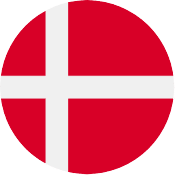
Basic Grammar Glossary
Basic Grammar Glossary
When learning a language it’s important to understand the parts of language and to be able to talk about these different parts. We refer to this as ‘metalanguage’ the words we use to talk about language. Below we have a very basic glossary with some of the terms you will come across in your language lessons.
Noun
The name of a person, place, thing or concept. Examples are: house, teacher, Italy, love, etc.
A concrete noun is something you can see or touch: table or man
An abstract noun is something that you cannot see or touch: death or noise
A countable noun is something that you can count, such as house, dog, or pen
An uncountable noun is something that you cannot count, such as milk, butter, or information
Adjective
An adjective describes a noun (and sometimes rarely pronouns). Examples are: slow, red, Italian and so on.
Verb
Often referred to as a doing word. Examples include walk, sit, dance, shout, think, or cook.
Adverb
Adverbs show (1) how activities/actions (etc.) happen (e.g. Their excitement built up gradually), and (2) add extra meaning to adjectives (it was very cold last winter). Examples are: slowly, quietly, well, sometimes, very, etc.
Tense
This is the form of a verb that shows us when the action or state happens (past, present or future).
Infinitive
Infinitives are unconjugated forms of verbs, typically interpreted as the ‘to’ form, for example, to eat, to drink, to sleep.
Preposition
A word like at, to, in, over etc. They show a relationship of time, place, direction (and so on) between two or more things: The book is on the table or Get some milk before you come home.
Pronoun
A word like I, me, you, he, him, it etc, that replaces a noun.
A: The dog in the yard is mine. B: Do you know who it belongs to?
Article
The indefinite article is a (a boy), and an (an ant). The definite article is the.
Auxiliary Verb
A verb that is used to assist a main verb. There are three main auxiliary verbs in English: Be (He is talking) have (I have broken my leg) and do (What do you think?). In English we use auxiliary verbs to ask questions, produce negative forms, give short answers, show emphasis and indicate tense.
Imperative
The basic form of a verb used as an order: Go!, Be good!, Drop it!
Modal Verb
A model verb is also an auxiliary verb. For example can, may, must, should etc. These verbs modify the main verb and expresses possibility, probability etc. They are also called a modal auxiliary verb.
Subject
The subject is the topic of the sentence, what we are talking about.
The book is about the American Civil War. The cat caught the mouse and ate it.
Object
a) The noun or pronoun that receives the action of the verb: He ate an apple. The direct object is the word directly affected by the action, while the indirect object is the one that receives the object being affected.
He gave his sister (indirect object) an apple (direct object).
b) The word that comes after a preposition (or is otherwise directly affected by a preposition): The worm is in the apple; He gave the apple to his sister; Who did he give the apple to?
Cactus language offers the following types of language courses:
Evening language courses: 19 different languages in 15 UK locations
Language holidays: worldwide immersion courses in the country of the language
Private tuition: tailor-made and corporate language training solutions throughout the world
TEFL: teacher training courses for both English and other languages all over the world
Online courses: for teacher training, English and French
To book any of our courses please call us on 01273 830 960 or email us. Our multilingual team will be happy to answer any questions you may have.

 French
French German
German Italian
Italian Spanish
Spanish Arabic
Arabic Cantonese
Cantonese Czech
Czech Croatian
Croatian Danish
Danish Dutch
Dutch English
English Greek
Greek Hebrew
Hebrew Hindi
Hindi Japanese
Japanese Korean
Korean Norwegian
Norwegian Polish
Polish Portuguese
Portuguese Russian
Russian Swedish
Swedish Thai
Thai Turkish
Turkish Ukrainian
Ukrainian